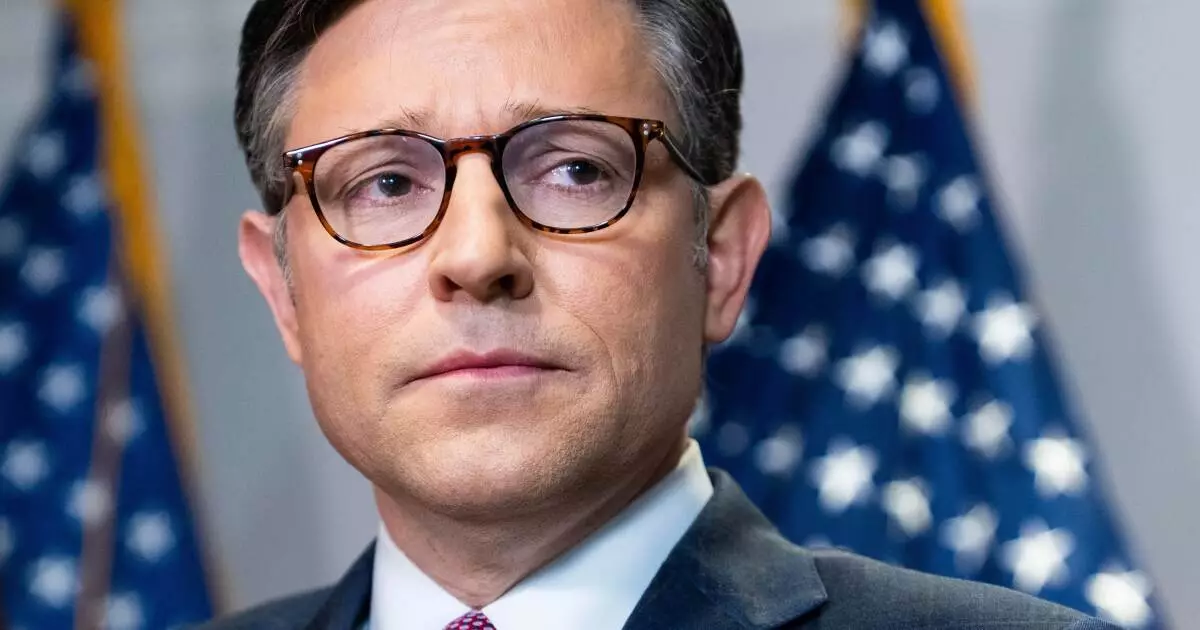The current legislative landscape in Washington is reminiscent of a game of political chess, marked by a series of contentious moves and unexpected withdrawals. House Republicans find themselves embroiled in an internal conflict regarding key legislation that juxtaposes the funding of government operations with efforts to enhance voting regulations. This ongoing debate has substantial implications for state and local governments, who are bracing for potential disruptions in federal funding and the consequent ripple effects on public services.
As the deadline of September 30 looms for federal funding, the House has proposed the “Safeguard American Voter Eligibility Act,” a bill aimed at reinforcing existing laws concerning voting eligibility. This legislation seeks to impose new barriers to prevent non-U.S. citizens from participating in presidential elections—an act that is already prohibited under current laws. House Speaker Mike Johnson of Louisiana is spearheading the push for this initiative, emphasizing its significance in the current political climate. He characterized the forthcoming vote as a pivotal moment for members of the House, stating, “This will be one of the most important votes that members of this chamber will ever take in their entire careers.”
However, the road to passing this bill has proven to be fraught with complications. Initially slated for a vote, Speaker Johnson’s decision to withdraw it from consideration was indicative of deepening fractures within the Republican ranks. Notably, some members, particularly defense-oriented conservatives, expressed frustration over the proposal, arguing instead for an increase in military spending, a priority that clashes with the focus on election-related issues.
The political environment surrounding this legislation is further complicated by the composition of Congress. The Senate, which is under Democratic control, has already signaled its opposition to the House’s proposal, effectively rendering the bill dead on arrival in the upper chamber. The White House is poised to issue a veto should the legislation miraculously bypass Senate hurdles. Both sides of the aisle appear entrenched in their positions, and the likelihood of a compromise seems slim.
The potential fallout from this legislative impasse extends far beyond the marble halls of Congress. Analysts warn that a partial or full government shutdown could severely affect local governments across the nation. According to Nicole Weissman, director of strategic communications at the National Association of Counties, federal funding constitutes nearly a third of county revenue. As local governments rely heavily on these federal disbursements to execute their responsibilities, any disruption could result in significant challenges for budgeting and planning.
Irma Esparza Diggs, from the National League of Cities, elaborates on this concern, explaining that many federal grants are predicated on a reimbursement model. Local governments initially expend their own resources, only to be reimbursed later. A government shutdown could bog down this reimbursement process, forcing local administrations to shoulder unexpected debts.
The ongoing crisis illustrates the complexity of the U.S. appropriations process, which feels increasingly antiquated in today’s rapid political climate. The current plan includes a $1.6 trillion proposal that seeks to maintain current spending levels for another six months. This contemporary strategy, backed by former President Trump, may be an attempt to stabilize budgets in anticipation of potential political shifts in future elections.
The appropriations timeline itself is convoluted; it involves a presidential budget submitted well in advance, and both houses of Congress are expected to work through the intricacies of budgeting to finalize appropriations bills by June 30 for the upcoming fiscal year. The fact that only five out of twelve fiscal year 2025 spending bills have passed in the House, contrasted with the Senate’s slightly better progress, highlights the backlogged nature of this year’s budgeting process.
As the countdown to a possible government shutdown continues, the key players in Washington find themselves navigating a precarious path filled with competing priorities and factional disagreements. The stakes remain high, not just for lawmakers but also for the communities and citizens depending on government funding for essential services. The interaction of budgeting battles with broader political issues may well redefine the legislative agenda in the months ahead.


Leave a Reply